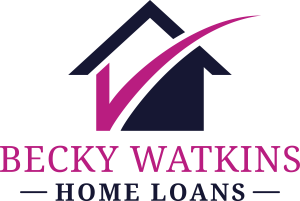
FHA Home Loans
Want to make the leap to home ownership? The most common entry mortgage program is the FHA loan. With down payments as low as 3.5%, the FHA loan may make most sense for a first-time buyer.
The best parts of using an FHA loan program include:
Low Down Payment Options
With down payment amounts as low as 3.5%, FHA loans offer easier entry for many buyers, especially first-time buyers. Let’s talk about the cash you’re prepared to put down and strategize your best loan options.
Easier Credit Requirements
FHA loans were created to reduce the barriers to home ownership. With more lenient qualifying guidelines that allow lower credit scores and higher debt ratios, FHA loans make homeownership within reach of more people.
Minimal Credit Checks
Historically, FHA loans boast lower interest rates than Conventional loans, and offers a streamlined refinance that skips credit checks and appraisals, ideal for cost and time savings during rate drops. FHA loans can also be assumed by qualified buyers.
Are you a first time home buyer? Read our list of Common Mistakes First-Time Buyers Should Be Aware Of When Financing Their First Home to ensure you understand the full scope of options and components of your mortgage plan.
What Is An FHA Loan
FHA loans, or Federal Housing Administration loans, are a type of mortgage backed by the government, specifically designed to make homeownership more accessible to a wider range of individuals. Established in 1934 as part of the National Housing Act, the FHA aims to encourage lenders to provide mortgage financing to borrowers who may not qualify for conventional loans due to less-than-perfect credit scores or lower down payment capabilities.
What sets FHA loans apart from conventional mortgages is their lenient eligibility requirements. Borrowers can qualify for an FHA loan with a credit score as low as 580 and a down payment as low as 3.5% of the purchase price. Additionally, FHA loans offer competitive interest rates and flexible terms, making them an attractive option for first-time homebuyers and those with limited financial resources.
The FHA insures lenders against losses in the event of borrower default, mitigating risk and allowing lenders to extend financing to borrowers who may otherwise be considered too risky. This government backing provides assurance to lenders, enabling them to offer more favorable loan terms to borrowers.
Overall, FHA loans play a crucial role in expanding homeownership opportunities and stimulating the housing market, particularly for individuals who may face barriers to obtaining conventional financing. Whether you're a first-time homebuyer or seeking an affordable mortgage solution, FHA loans offer a viable path to achieving your homeownership goals.
How Do FHA Loans Work
FHA loans operate under a unique framework designed to facilitate homeownership for individuals who may face challenges qualifying for conventional mortgages. These loans are insured by the Federal Housing Administration, a government agency, which enables lenders to offer more favorable terms to borrowers.
The components of an FHA mortgage include:
Down Payment: FHA loans require a minimum down payment of 3.5% of the purchase price, which is lower than the typical 20% required for conventional loans. This makes homeownership more accessible to individuals with limited savings.
Credit Requirements: While FHA loans are more lenient in terms of credit scores, borrowers still need to demonstrate a reasonable credit history and a sufficient debt-to-income ratio to qualify.
Mortgage Insurance Premium (MIP): FHA loans require borrowers to pay an upfront mortgage insurance premium at closing, as well as an annual premium that is paid monthly. This insurance protects the lender in case the borrower defaults on the loan.
The basic mortgage process for FHA loans involves:
Pre-Approval: Prospective homebuyers begin by getting pre-approved for an FHA loan, which involves submitting financial documentation to a lender for review.
Home Search: Once pre-approved, borrowers can start their home search within their budgetary constraints.
Offer and Acceptance: When the borrower finds a suitable property, they make an offer, and upon acceptance by the seller, the home buying process moves forward.
Loan Processing and Underwriting: The lender processes the loan application and verifies the borrower's financial information. An underwriter assesses the loan application to ensure it meets FHA guidelines.
Closing: Finally, the loan is closed, and the borrower takes ownership of the property, with the FHA loan financing the purchase.
In summary, FHA loans offer a pathway to homeownership for individuals with limited financial resources or less-than-perfect credit, making the dream of owning a home a reality for many.
FHA Loan Requirements
Securing an FHA loan involves meeting specific requirements and providing various documentation to lenders. Here's a breakdown of what's typically required:
Personal Information: Borrowers must provide personal details, including full legal name, date of birth, Social Security number, and contact information. This information helps lenders verify identity and assess creditworthiness.
Employment History: Lenders typically request employment history for the past two years, including employer names, addresses, and dates of employment. Stable employment demonstrates financial stability and the ability to repay the loan.
Income Verification: Borrowers need to provide proof of income, such as recent pay stubs, W-2 forms, or tax returns. This helps lenders calculate debt-to-income ratios to ensure borrowers can afford the mortgage payments.
Credit History: While FHA loans are known for accommodating lower credit scores, lenders still review credit history to assess risk. Borrowers with past credit issues may still qualify for an FHA loan but might face higher interest rates or additional requirements.
Down Payment: FHA loans require a minimum down payment of 3.5% of the purchase price. This down payment can come from personal savings, gifts, or down payment assistance programs.
Debt-to-Income Ratio (DTI): Lenders evaluate borrowers' debt-to-income ratios to ensure they can comfortably afford the mortgage payments. The FHA typically requires a maximum DTI ratio of 43%, although exceptions may apply for borrowers with compensating factors.
Property Appraisal: An FHA-approved appraiser assesses the property's value and condition to ensure it meets FHA standards. The appraisal helps protect both the borrower and the lender by ensuring the property is worth the loan amount.
Mortgage Insurance Premium (MIP): FHA loans require borrowers to pay upfront and annual mortgage insurance premiums. This insurance protects the lender against losses if the borrower defaults on the loan.
By understanding and fulfilling these FHA loan requirements, borrowers can increase their chances of successfully obtaining financing for their home purchase. It's essential to work closely with a knowledgeable lender who can guide borrowers through the process and help them meet all necessary requirements.
FHA Loan Down Payments
One of the significant advantages of FHA loans is their low down payment requirement, which makes homeownership more accessible to a broader range of individuals. Here's what you need to know about FHA down payments:
Minimum Down Payment: FHA loans require a minimum down payment of just 3.5% of the purchase price. This low down payment requirement allows borrowers to purchase a home with less cash upfront compared to conventional loans, which typically require a down payment of 20%.
Affordability: The ability to make a smaller down payment with an FHA loan can be particularly beneficial for first-time homebuyers or those with limited savings. It enables more individuals to enter the housing market and achieve their homeownership goals without having to save for a large down payment.
Considerations: While a lower down payment can make homeownership more accessible, borrowers should consider the impact on their overall loan costs. A smaller down payment means borrowing more money, resulting in higher monthly mortgage payments, increased interest costs over the life of the loan, and the need to pay for private mortgage insurance (PMI).
PMI and Interest Rates: With an FHA loan, borrowers are required to pay an upfront mortgage insurance premium (UFMIP) and an annual mortgage insurance premium (MIP) throughout the life of the loan. Additionally, borrowers with lower down payments may face slightly higher interest rates to offset the increased risk for lenders.
Long-Term Savings: While a larger down payment can reduce monthly payments, interest costs, and the need for PMI, it's essential to weigh the benefits against your financial situation and long-term goals. Some borrowers may prefer to preserve cash for other purposes or invest it elsewhere, while others may prioritize reducing their overall mortgage debt.
In summary, FHA loans offer the flexibility of a low down payment, making homeownership more attainable for many individuals. However, borrowers should carefully consider their down payment amount and its implications on their overall loan costs and financial goals. Working with a knowledgeable lender can help borrowers make informed decisions and navigate the FHA loan process effectively.
Credit Requirements for FHA Loans
When it comes to obtaining an FHA loan, understanding the credit requirements is essential for potential homebuyers. Unlike conventional mortgages, FHA loans offer more lenient credit requirements, making homeownership attainable for individuals with varying credit profiles.
Credit Scores: Credit scores play a crucial role in the mortgage approval process. They reflect a borrower's creditworthiness and help lenders assess the risk of default. Credit scores typically range from 300 to 850, with higher scores indicating lower risk.
Credit Report: Lenders review credit reports from the three major credit bureaus: Equifax, Experian, and TransUnion. These reports provide detailed information about a borrower's credit history, including payment history, outstanding debts, and credit utilization.
Impact on Interest Rate and Payments: A borrower's credit score can significantly impact their mortgage interest rate and overall loan payment amount. Higher credit scores generally qualify for lower interest rates, resulting in lower monthly mortgage payments. Conversely, lower credit scores may lead to higher interest rates and increased monthly payments.
Easier Credit Requirements: One of the primary advantages of FHA loans is their more relaxed credit requirements. While conventional loans may require higher credit scores, FHA loans accommodate borrowers with credit scores as low as 580. Additionally, borrowers with credit scores between 500 and 579 may still qualify with a higher down payment.
Ideal for First-Time Buyers: FHA loans are particularly appealing to first-time homebuyers who may have limited credit history or past credit challenges. The FHA's flexible credit requirements provide an opportunity for these individuals to achieve homeownership without the need for perfect credit.
In summary, FHA loans offer a pathway to homeownership for individuals with varying credit profiles, including first-time buyers and those with less-than-perfect credit. By understanding the credit requirements and how they impact the mortgage process, borrowers can take steps to improve their creditworthiness and secure the financing they need to purchase their dream home.
FHA Loan Limits
FHA loan limits are an important aspect of securing financing for your home purchase. Here's what you need to know about FHA loan limits and how they can impact your mortgage options:
What are Loan Limits?: Loan limits represent the maximum amount of money borrowers can borrow through certain types of loans, including FHA loans. These limits are set by the Federal Housing Administration and vary by location based on housing market conditions.
Applying to FHA Loans: FHA loan limits determine the maximum loan amount borrowers can obtain with an FHA loan in their area. Borrowers can use FHA loans to finance properties within these limits, making homeownership accessible to a wider range of individuals.
Exceeding Loan Limits: If the property's purchase price exceeds the FHA loan limit in a particular area, borrowers may need to explore alternative financing options, such as jumbo loans. Jumbo loans allow borrowers to finance properties that exceed the standard loan limits, but they typically come with stricter requirements and higher interest rates.
Finding Your Area's Loan Limits: To determine the FHA loan limits in your area, you can visit the official website of the U.S. Department of Housing and Urban Development (HUD). HUD publishes a list of FHA loan limits for each county, allowing borrowers to understand the maximum loan amount they can qualify for in their desired location.
Strategic Considerations: When choosing between FHA loans and jumbo loans, borrowers should consider their financial situation, housing market conditions, and long-term goals. While FHA loans offer lower down payment requirements and more lenient credit criteria, jumbo loans provide financing for higher-priced properties but may require larger down payments and stricter qualification standards.
By understanding FHA loan limits and strategically choosing the appropriate loan type based on these limits and individual circumstances, borrowers can navigate the mortgage process effectively and achieve their homeownership goals.
Let’s talk about your FHA Loan Options
becky.nexalo@gmail.com
Call or Text: 505-235-9810
Looking for other loan options?
Conventional Loans
Discover the advantages of conventional home loans, which are perfect for buyers with strong credit and financial stability. With the potential for no upfront mortgage insurance and favorable rates, these loans offer a traditional path to homeownership, requiring as little as 3% down for first-timers.
HELOC Loans
Leverage the equity in your home with a Home Equity Line of Credit. This flexible financial tool gives you a revolving credit line to fund major expenses or ongoing needs. You'll have the freedom to borrow up to a set limit, pay interest only on the amount used, and manage variable interest rates throughout the loan's life.
VA Home Loans
Recognizing the sacrifices of military personnel, VA mortgages offer an exclusive pathway to homeownership with no down payment, competitive rates, and no private mortgage insurance. These loans, guaranteed by the Department of Veterans Affairs, are a top benefit for veterans, active duty members, and certain other groups, enabling them to finance 100% of their home purchase.
Jumbo Loans
Jumbo loans are specialized mortgages for properties priced above the regular Conventional loan limits, typically needed for homes valued at $750,000 or more. Requiring higher credit scores and substantial financial strength, these loans start with down payments of at least 10.1%. They provide the means to purchase luxury homes without PMI with a 20% down payment and come with adjustable or fixed-rate options.
Reverse Mortgage
Unlock the potential of your home equity with a reverse mortgage. This option is for homeowners 62 and older, offering a reverse flow of payments from the lender to the borrower, no monthly repayments, and tax-free income. It's a way to enjoy your retirement in the comfort of your home, with extra funds for your needs.
DSCR Loans
Designed for real estate investors, DSCR loans prioritize a property's ability to generate income over the borrower's income documentation. By evaluating the Debt Service Coverage Ratio, lenders ensure the rental income can sustain the loan payments. These loans typically demand higher credit scores, substantial down payments of 15% or more, and offer the advantage of no income verification, making it quicker for investors to expand their portfolios.
Feel Informed and Confident In Your Mortgage Decision
Get the information you need to feel happy with your mortgage choices. Find details about loan programs, qualifications, documents, strategies and more on our Mortgage Broker Blog.











